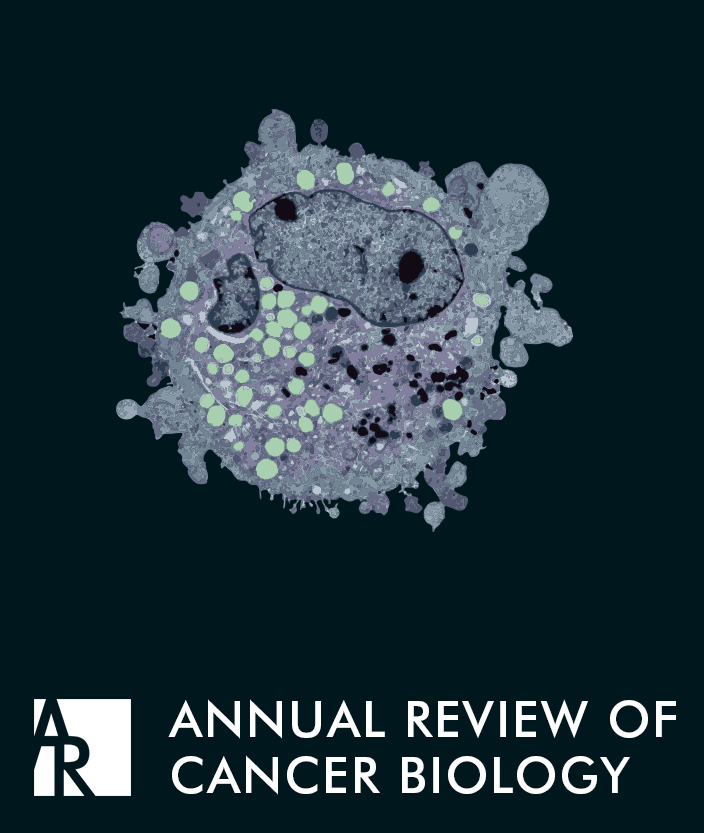靶向MYC蛋白用于肿瘤治疗
IF 4.7
2区 医学
Q1 ONCOLOGY
Annual Review of Cancer Biology-Series
Pub Date : 2020-03-09
DOI:10.1146/annurev-cancerbio-030518-055826
引用次数: 40
摘要
靶向MYC癌蛋白的功能有望实现概念上新的有效抗癌疗法,可应用于广泛的肿瘤。然而,靶点的性质——一种广泛的、可能具有普遍作用的转录因子,没有酶活性,除非与伴侣蛋白复合,否则基本上是非结构的——迄今为止,尚未开发出临床应用的MYC导向疗法。与此同时,关于MYC蛋白的哪些功能是其在人类肿瘤中普遍致癌作用的确切原因,并且需要靶向治疗,这一悬而未决的问题阻碍了使用在关键的MYC依赖性途径中起作用的替代靶点的有效疗法的发展。因此,在这篇综述中,我们认为,对关键致癌功能和蛋白质/蛋白质相互作用的严格测试以及针对它们的新化学方法对于成功根除MYC驱动的肿瘤是必要的。本文章由计算机程序翻译,如有差异,请以英文原文为准。
Targeting MYC Proteins for Tumor Therapy
Targeting the function of MYC oncoproteins holds the promise of achieving conceptually new and effective anticancer therapies that can be applied to a broad range of tumors. The nature of the target however—a broadly, possibly universally acting transcription factor that has no enzymatic activity and is largely unstructured unless complexed with partner proteins—has so far defied the development of clinically applicable MYC-directed therapies. At the same time, lingering questions about exactly which functions of MYC proteins account for their pervasive oncogenic role in human tumors and need to be targeted have prevented the development of effective therapies using surrogate targets that act in critical MYC-dependent pathways. In this review, we therefore argue that rigorous testing of critical oncogenic functions and protein/protein interactions and new chemical approaches to target them are necessary to successfully eradicate MYC-driven tumors.
求助全文
通过发布文献求助,成功后即可免费获取论文全文。
去求助
来源期刊

Annual Review of Cancer Biology-Series
Medicine-Oncology
CiteScore
14.50
自引率
1.30%
发文量
13
期刊介绍:
The Annual Review of Cancer Biology offers comprehensive reviews on various topics within cancer research, covering pivotal and emerging areas in the field. As our understanding of cancer's fundamental mechanisms deepens and more findings transition into targeted clinical treatments, the journal is structured around three main themes: Cancer Cell Biology, Tumorigenesis and Cancer Progression, and Translational Cancer Science. The current volume of this journal has transitioned from gated to open access through Annual Reviews' Subscribe to Open program, ensuring all articles are published under a CC BY license.
 求助内容:
求助内容: 应助结果提醒方式:
应助结果提醒方式:


